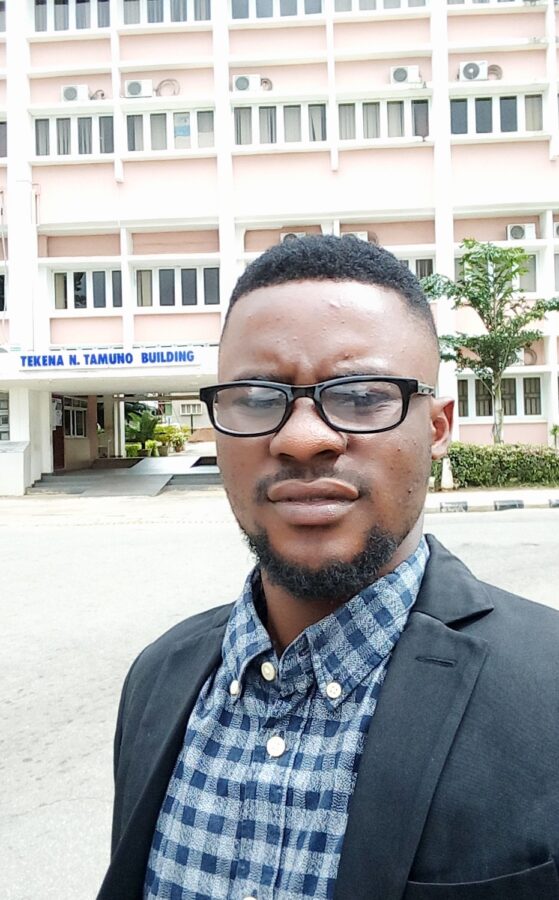Democracy & Governance
Commemorating World Press Freedom Day In Nigeria -By Ebere Chuks Onuedem

As Nigeria joined the rest of the world to mark World Press Freedom day yesterday, I thought it wise to do a little work on my old manuscript penned down 5 years ago.
World Press Freedom day is a day set aside to celebrate the fundamental principles of press freedom and to evaluate press freedom around the world so as to defend the media from attacks on their independence. It also aims to pay tribute to journalists for their efforts and struggle in the exercise of their profession. Furthermore, this special day serves as a reminder to governments on the need to allow the press to operate in a free and ‘unstrangulated’ environment. It is also an ‘aide memoire’ to journalists on the need to carry out their duties objectively and professionally.
This year’s World Press Freedom Day theme, “information as a public good”, accurately re-exerts the call to affirm the importance of cherishing information as a tool for societal advancement. It also serves to embolden transparency in the act of journalism, and more importantly, to advance the use of the press in checkmating the excesses of public offices. UNESCO Director-General, Audrey Audlay in her message stated that “the theme of this year’s event underlines the indisputable importance of verified and reliable information. It calls attention to the essential role of free and professional journalists in producing and disseminating this information by tackling ‘half truths’ and other harmful content.”
As a way of commemorating this very important event, there is the need to examine the real sense of the subject matter, ‘Press Freedom’ in our local environment, the Nigerian context. How does it feel like to celebrate Press Freedom in Nigeria?
One of the fundamental human rights of a Nigerian citizen, as enshrined in the constitution, is the freedom of speech… freedom of information… freedom of the press! The issue of the effectiveness of this ‘all-important right’ provided for by the nation’s constitution has remained a constant national debate.
For a solid political and democratic process, freedom of speech and freedom of the press is paramount. It must not continue to be conflicted with matters of ‘national interest’ and ‘state security’. Press freedom ought to serve as a bastion against extreme dictatorship by military regime and autocracy by civilian government. The press has been the people’s parliament when the national assembly was disbanded by juntas, it has been the shadow government when one party (military) dictatorship had enthroned itself in political power; it has also been the spokesperson of the nation when other articulate sectors of the nation (youth, labour, students, civil societies, etc) had been silenced. It has stepped out courageously in defence of the nation and the people’s right even when the judiciary had cowardly hidden under the cloak of legal subtlety and artifice.
All through our political process, the press has shown itself willing to pay the price of freedom; Dele Giwa, Ray Ekpu, Nduka Irabor, Isioma Daniel, Tunde Thompson and many others have suffered various forms of deprivation ranging from verbal and physical attacks, imprisonments to even death, all for their legitimate professional activities. No other segment of Nigerian society can offer comparable credentials and parallel feats for services rendered under conditions of severe risk and challenges.
The press refers to the totality of the information and media sector which is responsible for mass dissemination of information to the populace. They include the journalists and photographers who work for the newspapers, magazines, publishing and media organizations. By its freedom, we mean that the press must not be influenced or swayed in its duties by either the government or any high placed individual, neither political cabals nor military coercion and dictatorship should interfere in the function of the press; it should be completely independent! The press also should be adequately protected from public assault.
We cannot forget in a hurry the events of last year and how the press was affected. Many journalists were humiliated, beaten up, molested and even arrested while carrying out their legitimate duties. Time will fail me to do a critical recount of the many unfortunate individual experiences of journalists while in the line of action. We can still remember vividly the events of 2002, how a media company’s outlet was raised down by religious extremists on account of a publication they felt was inappropriate. Over the years, we have seen many other similar incidents. The list is endless! Recently, there has been a pattern of extreme government censorship on media organizations.
We must emphasize that freedom of expression, which also covers freedom of speech and press freedom, is a fundamental human right as encapsulated in article 19 of the Universal Declaration of Human Rights. As the world marks the international day of Press Freedom, there is the need for Nigerian journalists and pressmen to be truly free in carrying out their professional duties.
The press functions; as a bulwark against electoral deceit, an act of public accountability and check on abuse of power by those in the corridors of power, must be constitutionally assured, legislatively reinforced and judicially defended. Therefore for democracy to have meaning, a free press in which the government is neither owner nor stakeholder is a compelling objective!
Ebere Chuks Onuedem is a social commentator. You can connect with him on Facebook @patebere1, On Twitter @patrickebere or by email: eberechuksp@gmail.com.










